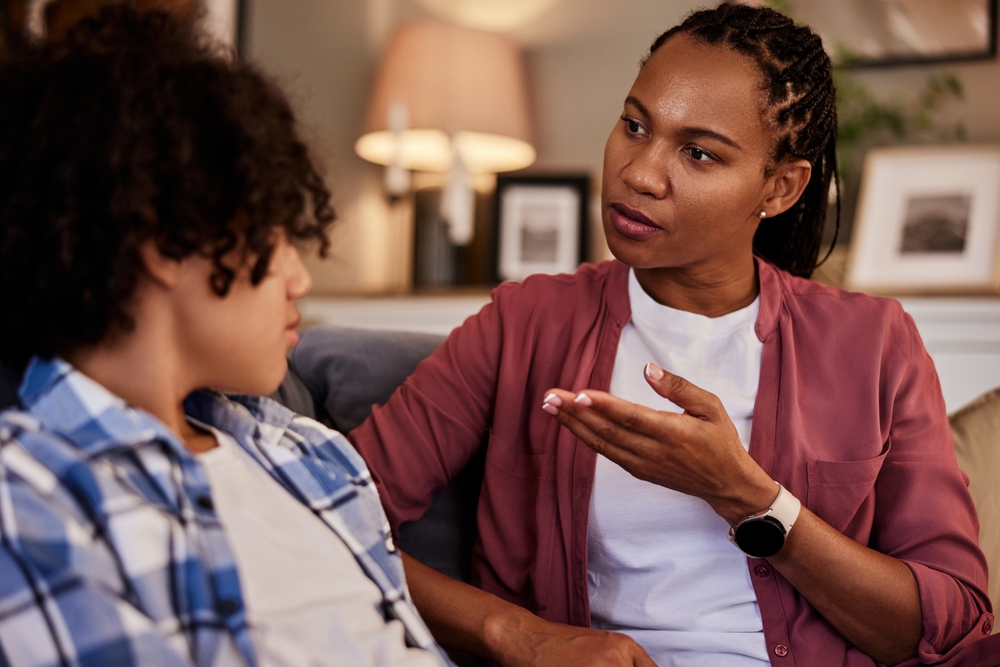The American Academy of Child and Adolescent Psychiatry explains that a “role model is a person who serves as an example by influencing others.” Role models can be either positive or negative, with positive role models offering a range of helpful and/ or useful behaviors, whereas negative role models offer examples of harmful or disruptive behaviors. Positive role models play a pivotal role in the mental health of teenagers, offering a range of benefits that contribute to their overall well-being. The Cureus Journal of Medical Science illuminate several advantages of having positive role models in teen mental health, some of which include:
- Building resilience: Witnessing the resilience of role models who have overcome obstacles fosters resilience in teenagers. This quality is essential for bouncing back from setbacks and developing a healthy mindset when facing life’s challenges.
- Development of coping skills: Positive role models exemplify effective coping mechanisms and stress management strategies. Teens can learn valuable skills for handling stress, anxiety, and other mental health challenges by observing how their role models navigate similar situations.
- Enhanced self-esteem: Interactions with positive role models who offer encouragement and validation can boost teenagers’ self-esteem. Feeling acknowledged and supported contributes to a positive self-image and a greater sense of self-worth.
- Encouragement of healthy choices: Role models often embody healthy lifestyles, both physically and mentally. Teens who look up to positive role models are more likely to adopt positive habits, including exercise, healthy eating, and prioritizing mental well-being.
- Inspiration and aspiration: Positive role models inspire teens to set goals and aspire to reach their full potential. By observing the achievements and positive qualities of role models, teenagers can envision a future for themselves and develop a sense of purpose.
- Advanced social and emotional development: Role models contribute to social and emotional learning by exemplifying qualities such as empathy, kindness, and emotional intelligence. These qualities are essential for building healthy relationships and managing emotions effectively.
Empirical evidence confirms that positive role models have protective effects on externalizing and internalizing behaviors and compensatory effects on school outcomes. In essence, positive role models in teen mental health contribute to the holistic development of adolescents, fostering emotional resilience, healthy habits, and a positive outlook on life. These role models offer invaluable support and guidance during a critical period of personal growth. Teenagers can turn to positive role models for advice, reassurance, and a sense of direction, helping them navigate the complexities of adolescence and mental health.
For Information and Support
Every family in need of mental health treatment must select a program that will best suit the needs of their family. When one member of a family struggles, it impacts everyone in the family unit. To maximize the benefits of treatment we work closely with the entire family to ensure that everyone is receiving the support they need through these difficult times.
Seeking help is never easy, but you are not alone! If you or someone you know needs mental health treatment, we strongly encourage you to reach out for help as quickly as possible. It is not uncommon for many mental health difficulties to impact a person’s life, long term. Pursuing support at the beginning of one’s journey can put the individual in the best position to learn how to manage themselves in a healthy way so they can go on to live happy and fulfilling lives.
OUR KNOWLEDGEABLE ADMISSIONS TEAM CAN BE REACHED 24/7 AT INFO@PACIFICRTC.COM OR CALL: 800-531-5769
We are available to answer any questions you may have regarding mental health treatment and our residential program, anytime. Contact us today using the form to the right.






